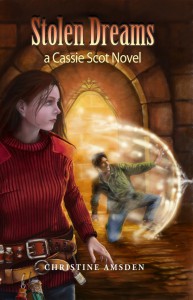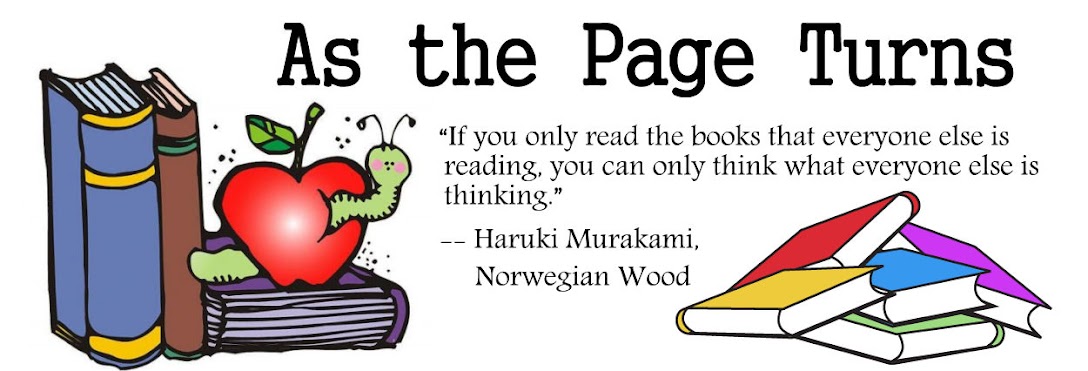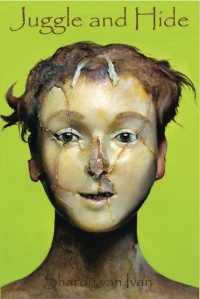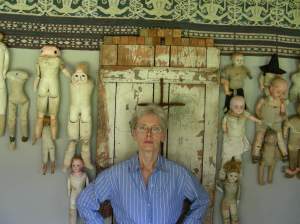Eliot Baker lives in Finland. He teaches communications at a local
college and runs an editing and translating business, but would be
content singing for his heavy metal band and writing novels full-time.
He grew up near Seattle, got his B.A. in World Literature at
PitzerCollege, and got his M.S. in Science Journalism from
BostonUniversity. He was an award-winning journalist at the Nantucket
Inquirer and Mirror, and before that he wrote for the Harvard Health
Letters. He spent four years pursuing a career in the sciences while at
the HarvardExtensionSchool, during which time he spun old people in
NASA-designed rocket chairs and kept younger people awake for 86 hours
at a time in a sleep deprivation study. He likes good books, all music,
and bad movies, and believes music and literature snobs just need a hug.
His latest book is the supernatural thriller/historical mystery, The Last Ancient.
Visit his blog at www.eliotbakerauthor.blogspot.com.
Can you tell us
what your book is about?
Absolutely. Around Nantucket Island, brutal crime
scenes are peppered with ancient coins, found by the one man who can unlock
their meaning. But what do the coins have to do with the crimes? Or the sudden
disease epidemic? Even the
creature? And who--or what--left them?
The answer leads reporter Simon Stephenson on a journey through
ancient mythology, numismatics, and the occult. Not to mention his own past,
which turns out to be even darker than he'd realized; his murdered father was a
feared arms dealer, after all. Along the way, Simon battles panic attacks and a
host of nasty characters -- some natural, others less so -- while his heiress
fiancee goes bridezilla, and a gorgeous rival TV reporter conceals her own
intentions.
Why did you write
your book?
It was time to put
my keyboard where my mouth was. After failing to publish a different novel a
decade earlier, I’d reached that magical triple point of creative inspiration,
financial stability, and an irresistible wedge of time. It all came together
after moving with my family to Finland. One
day between classes (I’m a teacher, amongst other things), I opened up my
laptop and stared out at the encroaching Finnish winter and thought back to my
time on Nantucket as a reporter, some of the best years and experiences of my
life. I thought about one of my first field assignments, shadowing a deer
hunter at dawn, and how the island sun rose all red and raw to a chorus of
gunfire. I got nostalgic. I typed, “Gunshots bark across Nantucket.” It was like an incantation. A portal
opened to another world.
Can you tell us a
little about your main and supporting characters?
Growing up the son
of a dangerous arms dealer (amongst other enterprises), the protagonist, Simon,
developed a host of anxiety issues, including intense panic attacks, while
being defended by his best friend and body guard, George the Greek. Simon has
deeply conflicted feelings about his father, of whom Simon wrote a
prize-winning expose before his father was assassinated. Judy, Simon’s Manhattan debutante fiancee, is a fellow Ivy League
overachiever and elite tennis player. Cecilia Rodriguez is much more than just
a sexy celebrity TV reporter covering Simon’s story—she’s a brainy girl of
humble origins who finds herself hopelessly entwined in Simon’s story. But none
of these characters are what they seem. And then there’s the creature, which is
perhaps in its own right the most dominant character.
Do you tend to base
your characters on real people or are they totally from your imagination?
Ultimately from
imagination, but my characters are like mosaics, or DJ samplings, of different
people: celebrities, historical figures, friends and acquaintances. I mix
wide-ranging traits into a single character, but the combinations of
personality ingredients often surprise me. For instance, I took pieces of the
best people I know and carved them into some arch villains to make them more
interesting and sympathetic. It’s like real life filtering into a dream. It’s
unavoidable, not a conscious decision. But of course other people will think
your character signifies something or someone else you hadn’t even considered.
If I do find that a character is too obviously like a real person, I flip some
combination of the character’s gender, race, sexual preference and age.
Are you consciously
aware of the plot before you begin a novel or do you discover it as you write?
Ah, the Great
Question! Yes, I’m highly aware of the plot once I put pen to paper. I have to
be, to stay on course. I believe plot is the soul and backbone of a story. I
always map out a beginning, some of the middle, and definitely an end– and then
let the book take on a life of its own. The rules and logic of the world
achieve their own sentience. I admire people with an engineer’s approach to
constructing a novel—hard chapter-by-chapter outlines, never deviated from,
with exactly five good pages written a day, and so on-- but I can’t do that.
Not completely. Just sucks out all the joy of discovery for me. So I write down
a strong outline and then open up my mind to whatever the little voices tell
me. I find that after tons of thinking about a world, and kilotons of research
and preparation, the keyboard becomes like a Ouija board for channeling the
world onto the page.
Your book is set in Nantucket.
Can you tell us why you chose this city in particular?
I fell in love with the Grey Lady (Nantucket, not the New York
Times) after I spent two years as a reporter on the island. There’s nothing
like it—the natural beauty, the swanky high society, the history, the
isolation, the collision of classes. It’s a place of extremes, and once you’re
there you can feel stuck there, which is just delicious when you throw in a few
assassins and a killer mythical beast. While I wasn’t sure what my first (published)
novel would be, I knew where it would be set.
Does the setting play a major part in the development of your story?
Oh, absolutely, as much as a setting can. Nantucket is a main
character of The Last Ancient. Being stuck on a small island thirty miles out
to sea with a murderer and a creature begs the tagline: “On Nantucket, no one can hear
you scream.” Also, the history-heavy coded message within the ancient coins
Simon keeps picking up at crime scenes has a nifty pay-off concerning Nantucket as a location.
Open the book to page 69. What is
happening?
Simon, fresh off of having just witnessed a grisly murder scene, tries to
grab a cheeseburger but is pestered by the town Sherriff, who insinuates he
knows something about Simon that makes him not only in danger, but a danger to
the island. Simon responds by threatening to publish a story about a shady land
deal the Sherriff has been involved in—which serves as the tip of the iceberg
for the great conspiracy unfolding on Nantucket before Simon’s eyes.
Is it hard to get a
genre-mashing supernatural thriller/historical mystery/horror/fantasy book
published?
Yes and no. Agents
I’ve met turn a peculiar shade when they tell them your book’s genre contains slashes. Which I get.
It’s much easier to find an audience for a distinct genre. But I happen to most
enjoy books that throw genres into a blender and make them cold and frothy with
a good dose of strong writing. The Last
Ancient had to blend genres. It’s an intricate mystery that I spent oodles
of effort to seem plausible, and then even more effort to make the writing not
suck. And it has alchemists. And journalists. And scientists. And arms dealers.
And a mythological creature. Oh, my. When you go outside the genre box and make
a stack of boxes, it’s always harder to get published.
Is it hard to
promote a genre-mashing supernatural thriller/historical mystery/horror/fantasy
book and where do you start?
Regardless of
genre, promoting represents a mountain range of difficulties for a debut indie
novelist to traverse. Just getting someone to read and review my novel for free
was a technical climb on slick rock I’d not anticipated. I had to attend
conferences and do crazy research to find out about things like book blasts,
blog tours, a social media platform, micro-publishing, etc.. I’ve found you
need to figure out what makes your book stand out and promote that uniqueness
to whoever is your most likely audience (once you identify it, which is tricky
with genre-mashing). Conventional wisdom has it that many genres are mutually
exclusive in their audiences, such as fantasy and thriller. I totally disagree.
American Gods, The Passage, Stephen
King – the counter-examples are endless but yes, it is hard to figure out to
whom I should promote when it’s not a straight romance or horror novel.
Have you suffered from writer’s block and what do you do to get back on
track?
I’ve never had it. I know people who have. It’s really terrifying. I’ve
of course had long bouts of lethargy and poor production, but true writer’s
block is a real mental issue that requires therapy; two people close to me
would sit down and go increasingly insane as they found they couldn’t write a
single word without going back over what they’d already written and tweaking
that. Four weeks and no new sentences later, they were ready for therapy. I
haven’t had that. I’m actually overwhelmed with the opposite problem; I have a
menu of twelve novels I’ve outlined, and it’s hard to focus on just one. Or
perhaps that qualifies as writer’s block?
What would you do with an extra hour today if you could do anything you
wanted?
I would extend my run in the endless Finnish sunshine by an hour! And
while I was running, I’d memorize some lyrics to whatever hard rock/metal song
my band is trying to cover.
Which holiday is your favorite and why?
I love the summer solstice here in Finland. It’s 24 hours of
sunshine, a giant bonfire, lots of sausage, fishing, beer, and guitar playing
with friends and family. Racing naked from the sauna to the lake and back
again…True pagan goodness.
If we were to meet for lunch to talk books, where would we go?
I think we’d go for a long hike in my native Northwest. No better way to
discuss ideas than sweating along a beautiful mountain path. In Finland, we’d do it winter-style,
cross country skiing or ice skating, followed by a session in a legendary
Finnish sauna. And then we’d go the local bar, Kirjakauppa, which means, of course, Book Store.
What do you like to do for fun?
I’m into singing for my heavy metal band, Sniffing Hyena. It’s sooooo
good for the soul to shout into the oppressive darkness of Finnish winter.
Outside of music, I am fairly outdoorsy (fair and cold weather), I exercise, I
read, and I will watch any movie with anyone as long as I get to hold the popcorn.
Can you tell us about your family?
They are awesome. My kids, four and six, boy and girl, are bi-lingual,
which never ceases to amaze me, as a suburban Seattle kid who still
struggles with Finnish. My wife is extremely supportive, she’s the brains and
organization behind the operation. My mother, Sharon Baker was a sci-fi
novelist when she was living. My father is a physician, still working at
eighty-three years young. And I have three older brothers who stopped beating
up on me a long time ago when I got bigger than them.
What do you like the most about being an author?
Knowing what I am, at a cellular level. Whether you figure it out in
grade school or upon retirement, one either is or is not an author, I think.
Either you’re willing to embrace the required frustration, rejection, and
loneliness, or you flee from it. It comes down to what gets your brain to
release the happy chemicals. For me, writing a good sentence makes my brain go,
“Oh!” Conceiving and nurturing a whole plot lights off the neuro-fireworks. As
a runner, I’ve had runner’s high. Writer’s high is better. Lasts longer. You
smell better, too, after four hours of writing than of running.
What is the most pivotal point of a writer’s life?
That moment you acknowledge that you are a writer. I started writing
something rather than going out to a party when I was twenty-one. I kept on
writing. And writing. And writing. I was just glowing with the thrill of it,
the discovery of ideas I didn’t realize I was capable of. I’m not religious, but
it was like having a certain kind of light shine through you. I wrote between
20 to 40 pages a day. That first effort (like many people’s first efforts)
wound up not getting published, but it was a turning point. I was hooked.
Writing is an addiction.
What kind of advice would you give other
fiction authors?
Paint a realistic portrait of success. An Indie NY Times best-seller? It
could happen, but probably won’t, so if that’s how you define success you’re
going to define yourself as a failure--even if you achieve the high honor of
publication. Success in writing is personal. Try, in the beginning, to just be
happy about completing a short story. Throw a little party for yourself.
Embrace the warm glow of creation. Then try a novel. Be okay with writing a
crappy first draft--and love every moment of it. Put it away for a month or
two. Then read it over. Do you still love it? Yes? Then, and only then, start
thinking about publication. Identify your weaknesses, your obstacles to
publishing—descriptions, characters, dialogue, plotting, whatever--and start
honing your craft. Don’t be afraid if it takes years to summit that mountain.
If Frodo turned away from Mount Doom, we’d all be
speaking Orc now. You’ll get there. Just keep living, keep writing, keep smiling.
 I can’t believe this is the last book in the Cassie Scot new adult paranormal mystery series! I really have enjoyed this series a lot.
I can’t believe this is the last book in the Cassie Scot new adult paranormal mystery series! I really have enjoyed this series a lot.












